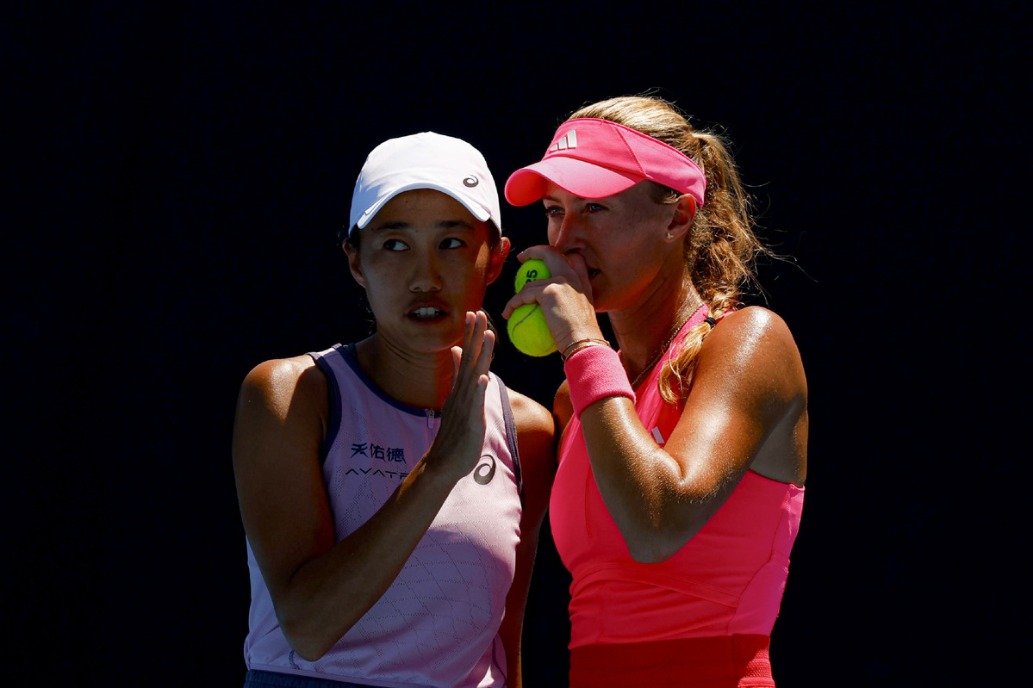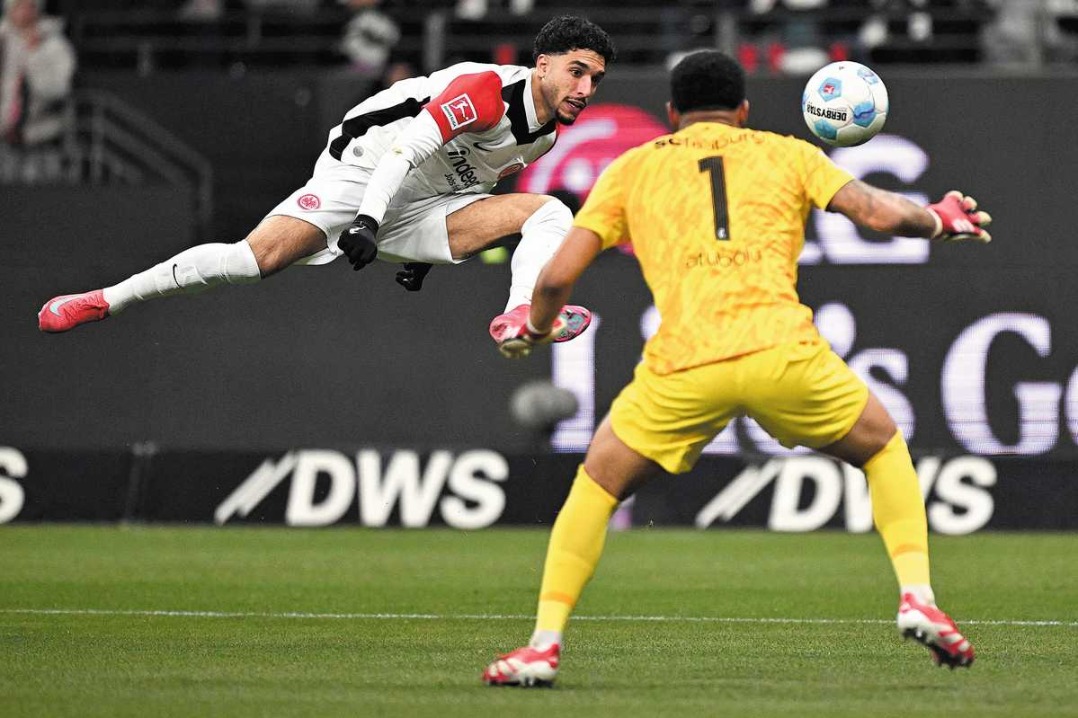Volunteer interpreter conveys true meaning of Games


Cao Zhongyuan may have had enough COVID-19 tests to last her a lifetime at the Tokyo Olympics, but that didn't diminish her enthusiasm for volunteering at the Games.
"I never expected that one day I could be an interpreter for an idol of mine, and it is at the Olympics," said Cao, a 22-year-old who studies at the prestigious University of Tokyo.
Having initially recruited roughly 80,000 volunteers for the Olympics and Paralympics, Tokyo 2020 saw around 10,000 of those successful applicants pull out after the one-year postponement of the Games due to the pandemic.
Cao was one of the 70,970 volunteers who decided to stay, and was assigned to work with the language team at the table tennis venue.
"I still remember when I filled out the application form, I chose table tennis as my favorite sport and applied for language-related services," she said. "That's exactly what I am doing right now."
However, with Tokyo under a state of emergency as daily coronavirus infections soared, Cao's work came with a certain degree of risk.
To deliver a "safe and secure "Games, all volunteers were requested to do regular screening tests, according to their proximity to athletes.
Cao, working as an interpreter in the mixed zone, needed to get a PCR test every four days, while in general, volunteers without contact with athletes were tested once a week. Before the Olympics started, volunteers had received at least one dose of the COVID-19 vaccine.
She wore two face masks and often found her glasses steamed up because of outdoor and indoor temperature differences.
"Safety is the top concern for sure. I have paid extra attention to self-hygiene, not only for myself but also for others, the athletes in particular," she said.
In the mixed zone, Cao stood between reporters and athletes, who were required to stay at least 2 meters apart. Volunteers helped put voice recorders in a tray before placing them in front of athletes.
On Cao's upper arms, badges which read "Chinese", "English", and "Japanese", informed people which languages she is proficient in.
Aside from taking compulsory English classes, Cao began learning Japanese in high school.
Speaking Mandarin, English, and Japanese fluently meant she was an ideal candidate to work with Team China.
Imagine her delight when she found out she would be interpreting for the great Ma Long, who retained his Olympic men's table tennis singles title in Tokyo.
"I was so thrilled that I had the opportunity to interpret for him and the foreign reporters after his semifinal against Germany's Dimitrij Ovtcharov," said Cao.
"It was a close match-4-3, and the competition was so intense that I kept holding my breath," she recalled.
"The players who love the sport so much are fighting for their countries, and the Olympics has made it possible. I'm witnessing all of this, which makes my work totally worthwhile," she said.
Victory for Ma over compatriot Fan Zhendong in the final provided another magic moment for Cao.
"No matter who won gold, I would be super happy, but Ma's title defense made me even happier," she said.
"I come from Shenyang, and Ma is from Anshan, both in Liaoning province in northeastern China. So maybe that gives me more of a sense of affinity with him."
Cao was also impressed by Ma's considerate personality.
"Sometimes, when foreign journalists mentioned a player that I had no idea about, he would kindly remind me of the player's Chinese name," she said.
After becoming the first-ever paddler to retain the Olympic men's singles title, Ma made a heart gesture with his hands, which had extra significance for Cao.
"I made a heart with my arms when I saw him in the mixed zone before, and it was such a coincidence that he made exactly the same gesture when he won," she enthused.
Some occasions, though, were not so easy to cope with.
In the mixed doubles final, Jun Mizutani and Mima Ito from the host nation clinched a narrow win over China's world No 1 pair Xu Xin and Liu Shiwen. Cao was asked to help translate for the Japanese duo.
"Our Chinese players came out first and I was standing right next to them. I saw clearly how heartbroken Liu was and tears were all over her face," Cao said. "That sight broke my heart, and I really wanted to tell her that you have done your best!"
But duty called, so Cao quickly processed her emotions and began to translate professionally what the Japanese players had said to the Chinese audience for TV.
"After I was done interpreting for the Japanese winners, I suddenly came to understand that all athletes, whatever their nationality, have gone through hardships, and they trained so hard to get to the Olympic arena," Cao noted. "It is not easy for any of them.
"We may win, and we may lose. I felt sad for our players, of course, but at the same time, the Japanese athletes also had my respect."
Xinhua
Most Popular
- Clinical Zhang, Mladenovic win through to third round in doubles at Australian Open
- NBA tips off 14th Chinese New Year celebration
- Noisy racket on 'party court' sees match moved
- Yamal drives dominant Barcelona past Betis
- 'Sensational' Arsenal back in title race: Arteta
- Coach: Garnacho can have bright future






























